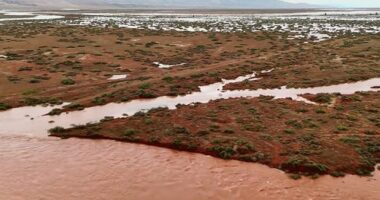Share this @internewscast.com
“I didn’t receive any direction regarding First Nations practices or connections with my community. There was no guidance on First Nations aspects, particularly concerning grief.”
“It was like reliving the worst day of my life over and over and over again.”
How many Australians have had a miscarriage?
“Our miscarriages have long been overlooked as they go unrecorded at the national level,” she shared with SBS. “It’s a disjointed healthcare framework.”
The report includes five suggestions, such as creating national data collection systems, establishing care standards for early pregnancy loss, ensuring continuity of care, and offering culturally safe care.
First Nations women ‘left behind’
“After experiencing a miscarriage, individuals often need to travel to larger regional centers for a D&C [surgery to remove the foetus], adding another layer of trauma,” she explained.
She pointed out that some of her staff, residing as far as 100 kilometers away, work on a “fly-in, fly-out” arrangement, complicating the consistency of care and education. As a result, people are frequently forced to rely on family support instead of healthcare providers.
“Shame comes into it as well — it still plays a very prominent role.”

Treen highlighted that women in regional locations must journey several hours to the nearest hospital, where they are treated impersonally and often discharged too soon due to insufficient staffing. Source: Getty / Thomas Barwick
‘Nothing is given without adequate data’
Those in rural, migrant and First Nations communities are the most vulnerable to this funding gap, she says.
“We’re all individuals. We all deserve equality. It doesn’t matter where we live. We all deserve the choice to have a good life,” she said. “So start investing in the people who are the grassroots of Australia — and that’s our First Nations people.”
Funding welcomed, but key ‘gaps’ remain
The Pink Elephant’s Support Network received $4 million while $1 million was allocated to the Australian Institute of Health and Welfare (AIHW) to scope the establishment of a national collection of miscarriage data.
“That will be data that’s entered by health professionals, but we still see another gap — the census.”
Calls for ‘validation’ in the census
Pink Elephants say the rejection “exemplifies how institutional decisions render [early pregnancy loss] statistically invisible”.










